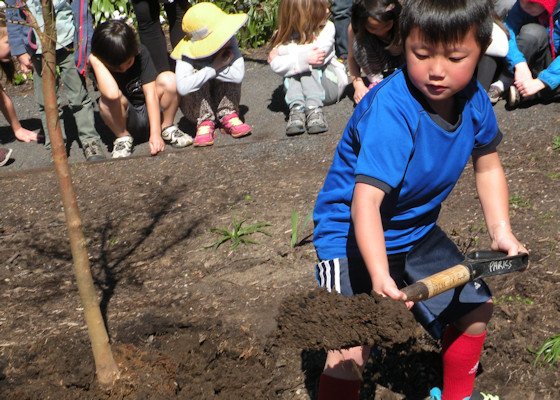Gov. Kotek proclaims April to be Oregon Arbor Month

SALEM, Ore. (KTVZ) – Governor Tina Kotek has proclaimed that April 2024 will be Oregon Arbor Month throughout the state. This year’s proclamation recognizes the importance to neighborhoods of urban trees as cities add housing and rapidly densify.
The proclamation states that “Trees play an integral role in fostering healthy communities,” adding that urban development and the preservation of trees demands a careful balance.
Governor Kotek said, “To protect Oregon’s natural and working lands in the face of the worsening climate crisis, we must build a more resilient future that forges connection across our landscapes, for both rural and urban communities alike. Arbor Month is key to this goal, promoting the preservation and planting of trees across Oregon.”
Her proclamation notes the loss of trees in Oregon to wildfire, extreme heat and drought, development pressures and new pests, such as emerald ash borer.
Oregon Dept. of Forestry Urban and Community Forestry Program Manager Scott Altenhoff said, “Replacing those trees will require us to pick up the pace not only of planting but also ensuring nurseries have the capacity to grow the numbers of trees needed and the types of trees that are resilient to climate and resistant to serious pests and diseases. Equally important is growing and diversifying the workforce in urban forestry.”
Altenhoff said there is also growing recognition, as cited in the proclamation, that the benefits of tree canopy have been unevenly distributed in the state.
“Many low-income areas and those with large populations of people of color having fewer large shade trees than more affluent neighborhoods,” said Altenhoff. “Research has shown that having fewer large shade trees in those lower-canopy neighborhoods is strongly associated with increased deaths from heart disease and poor health outcomes. Lack of trees can affect everything from having more low-birthweight babies to increased rates of asthma and mental health issues, not to mention domestic violence and crime.”
Altenhoff said that fortunately Oregon has worked hard to obtain more federal funding for urban forestry. “This year we will begin calling for applications from communities interested in getting grants from some $26 million in federal Inflation Reduction Act (IRA) and the Bipartisan Infrastructure Law (BIL) funds we’ve secured from the USDA Forest Service.”
Altenhoff said the federal funds have helped ODF expand its Urban Forestry team from just one manager and one community assistance forester trying to serve over 170 Oregon cities and towns to a team of seven, including a new grants administrator to process applications and monitor compliance with grant requirements.
“We are in a much better position now to help communities increase their canopy, with an emphasis on those historically disadvantaged communities that have the least canopy,” said Altenhoff. “In the wake of the 2020 heat dome and the dozens of resulting deaths from that, the Oregon Legislature has also recognized the need to ensure we have healthy, shade-giving urban forests. Last year legislators provided the first ever state funding dedicated to support urban forestry work, including funding for community assistance forester positions within ODF.
Arbor Month grew out of Arbor Day, a one-day tree-planting campaign in Nebraska in 1872. The event spread nationwide and expanded in many states to a week-long celebration of all-things tree related. In Oregon, a few years ago the non-profit Oregon Community Trees lobbied to expand the time devoted to celebrating trees to the entire month.
“Going to a month-long celebration has enabled us to encompass the growing number of tree planting and other tree-related activities held around the state,” said Oregon Community Trees President Tyler Roth. The organization he heads is an advisory council to ODF on urban forestry matters, and promotes urban forests statewide.
Tyler explained that Oregon is such a big state that early April marks the end of tree planting in the western part of the state. By contrast, in the colder climate of eastern Oregon tree planting may not be advisable until near the end of April.
“Having the entire month to plan activities appropriate to the climate and weather has made great sense,” he said.
OCT supports Arbor Month activities each year with small grants to Oregon communities. Roth said he expects at least half a dozen communities will receive grants later this month to boost their Arbor Month events.